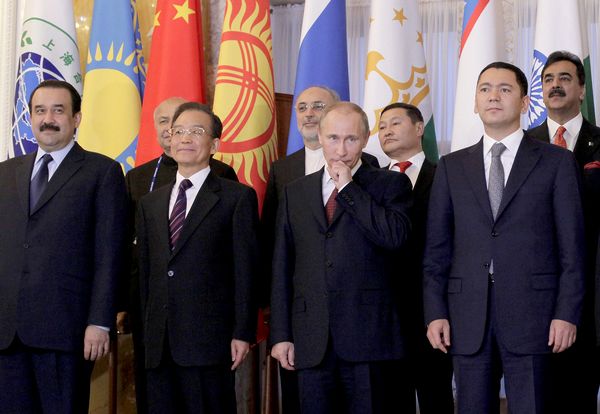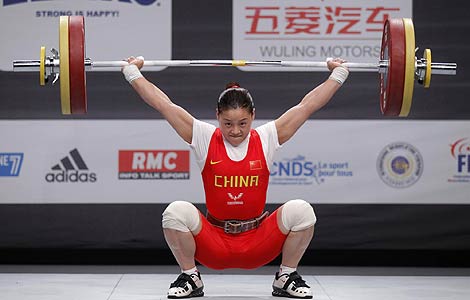Premier calls for closer regional ties
Updated: 2011-11-08 07:00
By Qin Jize (China Daily)
|
|||||||||
But Beijing has consistently been a source of stability for the SCO, Jin said. "It has a strong capability in that regard, both financially and in practical terms, such as engineering."
 |
|
Premier Wen Jiabao and Russia's Prime Minister Vladimir Putin, (fourth from the right), attend a photocall with regional premiers after a meeting on Monday of the Shanghai Cooperation Organization in St. Petersburg, Russia. [Photo/Agencies] |
Jin said he preferred China to push cooperation in a "low-profile and mild" way to ensure solidarity.
China's trade with the SCO has rocketed from $12.1 billion to some $90 billion during the past 10 years, a faster rate of increase than for any other bloc or country, Xinhua quoted Vice-Foreign Minister Cheng Guoping as saying.
The SCO, originally set up in the post-Cold War period to define borders, groups China, Russia and the Central Asian countries of Kazakhstan, Kyrgyzstan, Tajikistan and Uzbekistan.
In the past decade, the SCO has evolved from focusing solely on regional security to economic development.
An article in the New York Times three weeks ago said China has made great efforts to make that transformation happen.
This policy was formed in the knowledge that a stable and prosperous Central Asia would have a positive effect on China's underdeveloped Xinjiang Uygur autonomous region and benefits both China and the region. But China has gone beyond hard-nosed economics, it also proposed to enhance people-to-people exchanges.
Wen said at the meeting that as the rotating chair of the SCO, China is planning to invite 100 youths from the SCO to visit next year.
It is reported that China has established Confucius Institutes to teach Chinese in all the Central Asian states, except for Turkmenistan, and has also helped develop an SCO university that brings together some 60 universities across China and Eurasia.
Wen also held bilateral talks on Monday with his counterparts from Russia, Pakistan, Kazakhstan and Tajikistan.
Li Xiaokun and Zheng Yangpeng contributed to this story.











